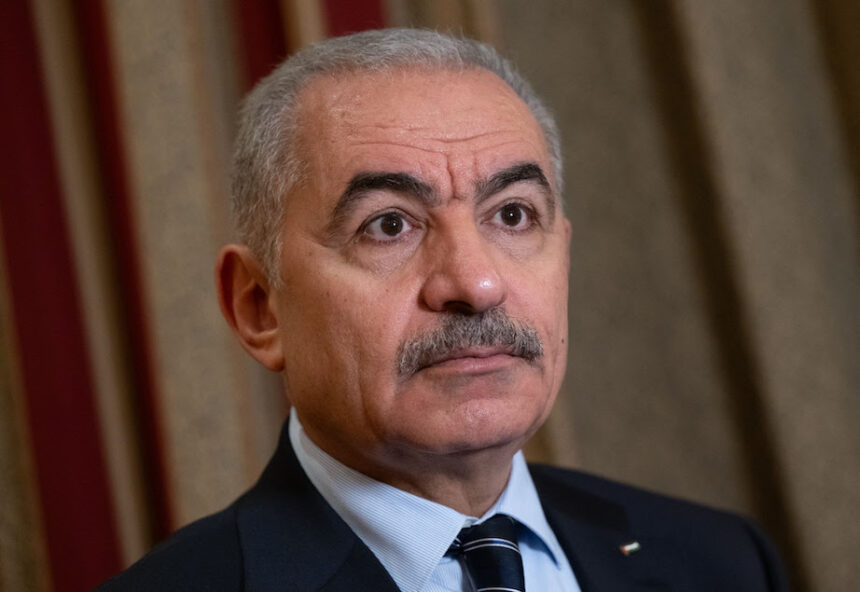By dpa correspondents I Sunday, Feb. 18, 2024
MUNICH – Palestinian Authority Prime Minister Mohammad Shtayyeh has called on the Israeli authorities to allow the population crammed into the south of the Gaza Strip to return to their homes further north.
Speaking in Munich on Sunday at the annual gathering of top political and defence officials in southern Germany to debate international security policy, the Palestinian leader issued a warning to Israeli Prime Minister Benjamin Netanyahu not to attempt to force Palestinians in Gaza across the border into Egypt.
“I know, and we know, that it has been an Israeli programme to push people out of Gaza. We and the Egyptians have been working hard not to allow this to happen,” he said.
“Egypt is not going to allow anybody to cross the border,” Shtayyeh said. There have been reports in the international press that Egypt is constructing a reception camp on its side of the border to accommodate Palestinian refugees.
The war in the Gaza Strip between Israel and the Palestinian Islamist organization Hamas, which has been going on for months, has so far only marginally affected the conference.
Individual speakers, including German Chancellor Olaf Scholz and US Secretary of State Antony Blinken, touched on the topic during their speeches and once again spoke out in favour of a two-state solution. This envisages an independent Palestinian state existing peacefully side by side with Israel.
Shtayyeh also said that the Fatah-dominated Palestinian Authority, which is based in Ramallah in the West Bank, does not maintain contacts with Hamas, which has run the Gaza Strip since 2007.
He noted that various Palestinian groups, including Fatah and Hamas, are to meet in Moscow on Thursday at Russia’s invitation.
The Palestinian Authority prime minister described the situation following the October 7 attacks as a catastrophe for everyone, but noted that the history of Palestinian suffering had begun in 1948.
Shtayyeh said the Palestinian Authority government did not aim to kill civilians, and he called for the spiral of violence to be broken. The Palestinian issue had to be resolved, and now was the time to do this, he said.
On the final day of the Munich Security Conference, speakers also focused on the war in Ukraine as well as the recent death of Russian opposition figure Alexei Navalny in prison.
Georgian President Salome Zourabichvili highlighted the timing of the announcement of the well-known dissident’s death, saying she believed it was not a coincidence, but a message from Russia.
“I think that it was no coincidence that the death of Navalny was announced a few hours or minutes before the start of the Munich conference,” the 71-year-old told dpa in an interview on the sidelines of the conference.
“That is the usual character trait of the Russian activity, to try to psychologically impress that Russia is doing whatever it wants, wherever it wants. And that was a message, I think, for the conference in Munich,” she said.
Navalny’s team confirmed his death on Saturday, citing Navalny’s mother Lyudmila Navalnaya. She had travelled to the prison camp in northern Russia and received the news of his death there, according to a post by Navalny’s spokeswoman on the social media platform X, formerly Twitter.
The death of the 47-year-old critic of Russian President Vladimir Putin, who had been imprisoned since 2021, is said to have occurred on Friday at 2:17 pm (0917 GMT).
The Russian prison service first announced Navalny’s death shortly before the start of the Munich Security Conference on Friday.
Besides Navalny’s death, the conference has also been overshadowed by recent remarks made by former US president and current presidential candidate Donald Trump, who had made it clear during an election campaign appearance that he would not grant Washington’s support to NATO allies with low defence spending in the event of a Russian attack.
Another cause for concern for Ukraine’s President Volodymyr Zelensky, who attended the conference in person on Saturday, is a new US aid package for Kiev that is being stalled in US Congress.
While Zelensky did his best to to convey to the US that further aid “is vital,” meeting US Vice President Kamala Harris and even inviting Trump or any other lawmaker to the front lines, one of Trump’s fiercest defenders in Congress on Sunday assured NATO allies they can count on the support of the US in the event of an attack – even if Trump wins a second term in November.
“Obviously, we love our NATO allies and I think we value the NATO alliance, and that’s true across the political spectrum,” Republican Senator JD Vance said on the sidelines of the conference.
But he said the message from Trump and his fellow right-wing Republicans was “that Europe has to be a little bit more self-sufficient” when it comes to their defence.
He told journalists that if Europe truly believed Putin is “an existential threat” then economic powers like Germany “have to step up.”
There are more than 30 members of the US Congress attending this year’s Munich Security Conference.
After the meeting attended by some 50 world leaders had drawn to a close on Sunday, Munich police drew a positive balance, saying only four criminal charges had been filed in the vicinity of the event.
On Saturday, several thousand people took to the streets of the southern German city to protest against the high-profile meeting.
